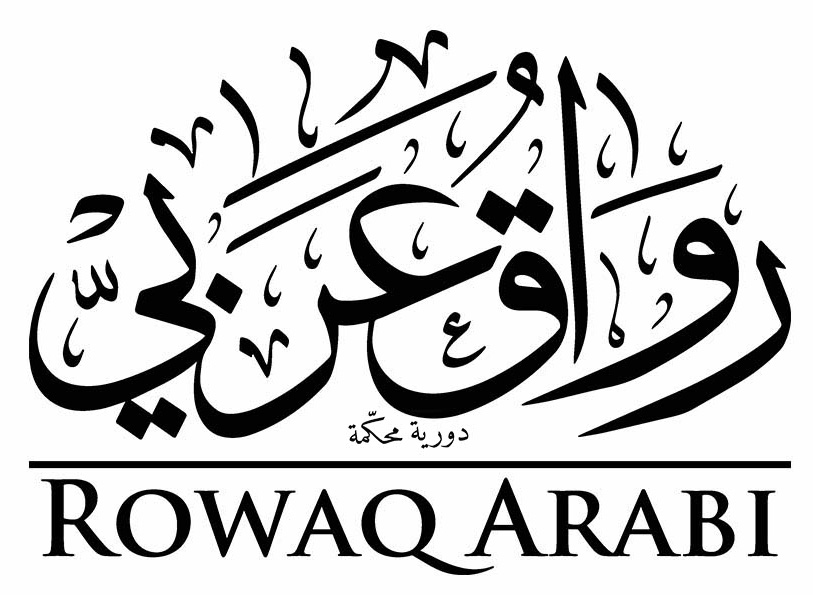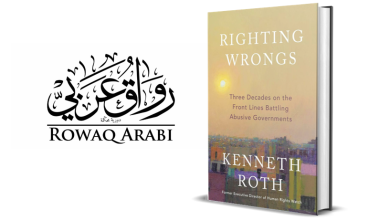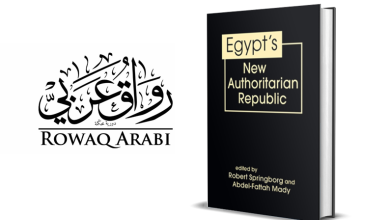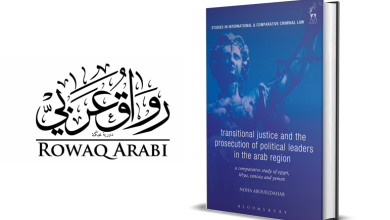Book Review: Decolonizing Human Rights by Abdullahi An-Naim
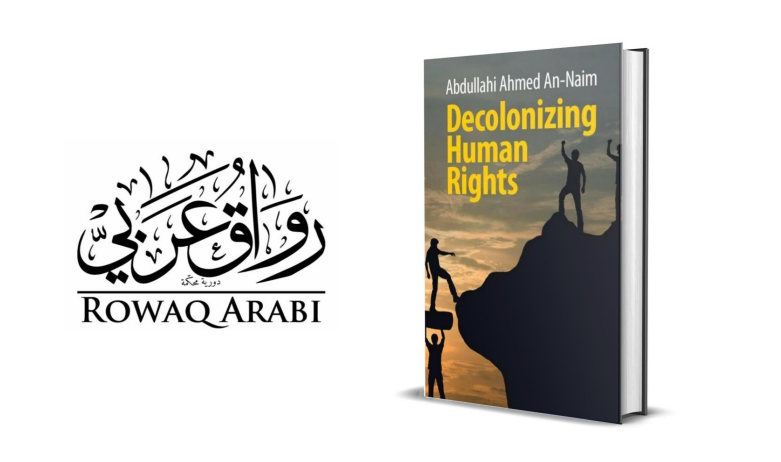
Citation: Aldardari, Sima (2024) ‘Book Review: Decolonizing Human Rights by Abdullahi An-Naim’, Rowaq Arabi 28 (2), pp. 54-58, DOI: 10.53833/EIAX6206
In ‘Decolonizing Human Rights’ (2021), Abdullahi Ahmed An-Naim challenges the prevailing understanding of universal human rights, rooted in Western norms and neo-colonial interests. Instead, he advocates for a paradigm shift towards a people-centric approach achieved through political mobilisation and cultural transformation. He does so by exposing inherent contradictions in the current international human rights regime, mainly the dominance of liberal relativism which asserts that Western liberal norms are universal, state-centrism, military intervention, and the system’s overall failure and inability to safeguard human rights. On the other hand, the process-oriented approach which he suggests aims to establish the protection of all human rights as an outcome of cultural transformation and political mobilisation where communities coordinate what An-Naim calls ‘the three Cs’, Concept, Content, and Context of human rights, emphasising local definitions and cultural factors. The book aims to expose the ‘supreme hypocrisy’ within the international human rights regime, particularly critiquing Western nations like the United States for championing global human rights while falling short globally and domestically.
An-Naim’s own identity as a Muslim dedicated to human rights as outlined in the Universal Declaration of Human Rights (UDHR) led him to the realisation that multiple views on human rights exist, even if the dominant Western discourse does not acknowledge them. Consequently, An-Naim asserts that neither the UDHR nor the Shari’a’s approach to universality can be deemed definitive. An-Naim discerns human rights in their purest essence, setting them apart from the dominant versions propagated by post-colonial states that perpetuate imbalances in power dynamics. According to An-Naim, human rights embody the entitlements of all individuals, irrespective of their backgrounds, and encapsulate their unique perspectives on these rights. On the other hand, the universality of human rights created under international law serves as a disguise for liberal relativism rather than constituting genuine global universalism.
Neo-Colonial Politics and Human Rights
An-Naim contextualises the universal human rights regime within neo-colonial politics, revealing historical continuities and critiquing state-centric enforcement. Shaped by global powers post-World War II, the system largely mirrors Western moral codes, fostering ‘human rights dependency.’ Therefore, former colonial powers, now posing as human rights champions, wield one-sided influence. An-Naim’s literature review, supporting his critiques, includes Antony Anghie’s[1] perspective on the enduring influence of the ‘civilising mission’ and its role in shaping international law paradigms. Positivism in the late nineteenth century drew distinctions between ‘civilised’ and ‘uncivilised’ countries, granting European states virtually unrestricted power over non-European societies. This perspective persists today, as seen in the War on Terror, considered by both Anghie and An-Naim as a form of modern imperialism. An-Naim also relies on Oona Hathaway’s[2] findings, citing a database covering 166 countries over forty years, which conclude that human rights treaties do not exert a statistically significant influence on the conduct of nations, and/or result in poor human rights practices in the countries that endorse them. An-Naim shares Hathaway’s perspective and leverages Stephen Hopgood’s[3] analysis to propose a solution to the contradictory and unequal global human rights regime which involves relying on structures resonating with people’s needs and identities, including ‘religious, nationalist, ethnic, and family structures.’[4] Although human rights violations may still occur with this approach, An-Naim contends that ‘the global human rights paradigm has failed in that endeavour as well.’[5]
In the Global North, while states advocate for universal human rights, the reality is that during the colonial era, universal human rights were inconceivable, emerging only after countries gained independence. The resulting human rights regime, built for and by these powers, enforces Western norms on non-Western countries. This Western-determined hierarchy also prioritises civil and political rights over social, cultural, and economic rights, relegating the latter to inferior status. The author argues for the interconnectedness of all rights, emphasising education and healthcare alongside freedom of expression.
Embedded in neo-colonial power dynamics, the universal human rights regime gives rise to contradictions, wherein states, acting as primary stakeholders, exploit international law to legitimise the infringement of individual and community rights. An-Naim challenges the notion that states bear the responsibility for safeguarding human rights, denouncing the prevalence of ‘state-centric enforcement.’ This approach renders certain states almost immune to accountability, affording them substantial power. Notably, the five permanent Security Council members exert significant influence over the council and its other members. Consequently, the book underscores the practical shortcomings of the human rights regime in enforcing human rights law, revealing its incapacity to hold influential states accountable. Quoting the US government’s official statement on the Convention against Torture’s ratifications, An-Naim exposes the hypocrisy in the international human rights regime. The power dynamics allow the United States to selectively ratify treaties for its benefit without facing repercussions, revealing the limitations in legally enforcing human rights treaties.
Critique of Humanitarian Interventions
The author critically examines humanitarian interventions, questioning their legality, legitimacy, and effectiveness. He asserts that military interventions frequently result in increased human rights violations and function as a contemporary form of colonial occupation. The author opposes the misuse of human rights protection to further imperial hegemony and underscores the illegality of military interventions as per the UN Charter and the International Court of Justice (ICJ). Nevertheless, An-Naim acknowledges the significance of enforcing human rights in extreme cases, such as genocide, but contends that foreign interventions by states or international organisations often lack the essential long-term commitment needed to establish sustainable human rights policies. Additionally, extending interventions to achieve lasting solutions undermines the self-determination of both local and external populations, ultimately failing to safeguard their human rights. While An-Naim recognises the likelihood of ongoing military interventions, he argues that the key lies in people advocating for accountability and authentic representation, driven by political mobilisation movements.
Towards a People-Centric Approach
In addressing the inherent contradictions within the current human rights regime, the author proposes a comprehensive approach that recognises individual life experiences, contextual factors, and various moral codes. An-Naim advocates for a paradigm shift where individuals and their societies take primary responsibility for upholding and preventing human rights violations. This shift, encapsulated in his three C approach—Concept, Content, and Context—represents a dynamic process aimed at developing and safeguarding human rights and dignity, independent of state protection.
While An-Naim does not call for a systematic overhaul of the existing system, he underscores the importance of consistent global legal practices and equal sovereignty. Rejecting neocolonial strategies, he asserts that the era of colonialism is over, advocating for a more limited role for states in upholding human rights with a focus on intergovernmental relations. Although recognising the historical complicity of postcolonial states in human rights abuses, An-Naim also acknowledges their positive functions in maintaining peace, security, public services, and economic development. However, his concern lies in their dominance, perpetuating unequal neo-colonial power dynamics and impeding the universal protection of human rights. An-Naim believes that civil society and political mobilisations should take the lead in upholding human rights morals within each context, ensuring that international organisations and states protect the public’s rights from the public’s perspective.
In his conclusion, An-Naim outlines practical steps for implementing his alternative approach, including addressing public ethics, instilling ‘values of transparency and accountability in public service’,[6] and discontinuing activities that hinder cultural transformation and political mobilisation. His critique of the current regime stems from the conviction that true universality, grounded in the unique concept, context, and content of each society and individual, is essential to preventing human rights violations globally, in contrast to the uniformity of the current system. Universal human rights, he argues, cannot be standardised; they must reflect diverse ways of life and contexts.
Unanswered Questions and Future Challenges
While An-Naim highlights important contradictions in the current regime, his approach introduces a myriad of unanswered questions, particularly regarding the application of truly universal human rights within a dominant capitalist system. For example, An-Naim does not address how political mobilisation is hindered in repressive contexts which force local human rights activists to seek assistance from international actors. The potential complications of political mobilisation, especially when infringing upon others’ rights, are also left unexplored. Additionally, the book neglects to adequately explore how political elites and actors in the Global South have contributed to perpetuating inequality and violating human rights and have themselves used neo-colonial tactics to oppress their populations.[7] The analysis also fails to address the funding dynamics of the current system and ways to ensure that resources are available for local populations through the suggested people-centric approach, and that local populations are represented in international human rights forums.
Nonetheless, the unfolding reality today supports An-Naim’s argument that political mobilisation is key to cultural transformation and peace, exemplified by the ongoing crisis in Gaza where so far over 23,968 people, two-thirds of them women and children,[8] have been killed by Israel’s military, backed by the United States. In response, a massive global political mobilisation has emerged, with people worldwide condemning the crimes and demanding a ceasefire. This situation highlights the stark mismatch between the international law regime, driven by a few countries’ interests, and diverse cultures opposing human rights violations. It also emphasises the inherent contradictions of existing international institutional arrangements. The protesters reject this regime, recognising its failure to align with their conceptions of rights. Palestinian-American lawyer Noura Erakat, addressing the Israel-Gaza conflict in a recent speech,[9] notes this contradiction by explaining that Israel has not only avoided accountability but also influenced international law to justify its violence. She also describes how the current regime fails to protect human rights universally by stating that ‘what happens to Palestinians now sets a new precedent, meaning that everywhere in the world is not safe.’ However, Erakat highlights that political mobilisation is driving change, causing global vibrations and generational shifts.
‘In our vigilance, we can protect ourselves; we need not cower,’ she continues. Erakat’s words echo An-Naim’s approach, centred on individual and community context, aimed at countering the ‘supreme hypocrisy’ in the human rights regime. Both emphasise the need for decolonising the current international human rights regime in order to foster true universality that respects people’s self-determination.
[2] Hathaway, Oona A (2002) ‘Do Human Rights Treaties Make a Difference?’ The Yale Law Journal 111, (8), pp: 1935–2042.
[3] Hopgood, Stephen (2013) The Endtimes of Human Rights (New York: Cornell University Press).
[4] An-Naim, Abdullahi Ahmed (2021) Decolonizing Human Rights (Cambridge: Cambridge University Press), p: 10.
[5] Ibid.
[6] Ibid, p: 102.
[7] Gani, Jasmine K (2021) ‘Racial Militarism and Civilizational Anxiety at the Imperial Encounter: From Metropole to the Postcolonial State,’ Security Dialogue 52 (6), pp: 546-566.
[8] Aljazeera (2024) ‘Israel Vows not to ‘Stop’ as Gaza Death Toll Nears 24,000 on Day 100 of War,’ 14 January, accessed 15 January 2024, https://rb.gy/nhqfw8
[9] Jadaliyya (2023) ‘Noura Erakat’s Speech ‘In This Moment,’’ 1 November, accessed 11 November 2023, https://www.youtube.com/watch?v=1YavyF186PA
Read this post in: العربية
